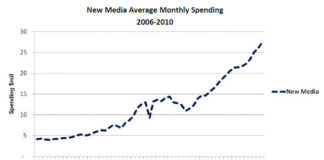“Only your doctor can tell you if [Brand Drug Name Here] is right for you.” is a phrase often seen in brand DTC (direct to consumer) print and TV ads. If generic drugs were advertised like their brand equivalents, the ads could not say “Only your doctor can tell you if [Generic Drug Name Here] is right for you.”
That’s because, when it comes to misconceptions about generic drugs, physicians score higher than consumers.
According to the “2006 Drug Trend Report” by Medco:
“The survey found that physicians trail consumers and pharmacists regarding their knowledge of and confidence in the safety and effectiveness of generic drugs which could have broad implications for the forthcoming boon in savings from the expected drug patent expirations of branded drugs worth over $40 billion in U.S. sales:
- “One quarter of the physicians surveyed stated that they do not believe generic medications to be chemically identical to their branded counterparts; more than 8 percent said they were unsure. This despite FDA rules that require generic versions of the drug be bioequivalent to the brand medication
- Nearly one in five physicians believes generic drugs are less safe than brand-name medications, and more than one in four doctors (27 percent) believe generic medications will cause more side effects than brands”
(See chart below.)
Pharmacists, on the other hand, know the score on generics.It’s shocking that physicians are less savvy about generics than their patients. But to understand why so many physicians harbor misconceptions about generics we need to look at the pharmacist data and ask: Why aren’t the numbers for physicians closer to their professional pharmacist colleagues?
The one distinguishing factor is detailing by pharmaceutical sales reps. Only physicians are detailed on the “benefits” of brand name drugs vs. generics by sales reps. Pharmacists are merely urged to stock enough drugs to handle the expected surge of prescriptions resulting from a sales campaign.
When a brand drug faces generic competition, a major goal of the reps’ “benefit” spiel to physicians is to cast doubt on the efficacy and safety of the generic equivalent. It appears that a substantial number of physicians swallow this spiel hook, line and sinker.
“With such overwhelming clinical evidence over a long period of time validating the therapeutic benefits of generic medicines, these survey results underscore the need to redouble our educational outreach efforts to physicians concerning generics,” said Dr. Robert Epstein, Medco’s Chief Medical Officer. “Generics deliver the dual benefit of quality therapy that provides economic benefits to the patient and payor, ensuring prescription healthcare remains affordable and accessible.”
The drug industry spends $1 billion dollars per year on CME-accredited physician education, which can only mention drugs by their generic names. Despite that — or should we say because of that — doctors are still not educated when it comes to generics!
We shouldn’t expect CME (continuing medical education) sponsored by pharma companies to help physicians understand generics. Most of this support comes from companies with new Rx brands entering the market when generics are not available. The physician is being educated to link the brand name with the great benefits and safety profile being presented simply because only the brand name drug is out there being promoted by PR (see “Marketing Disguised as PR“).










![6 Digital Tools at the Center of Healthcare Digitalization [INFOGRAPHIC]](http://ec2-54-175-84-28.compute-1.amazonaws.com/pharma-mkting.com/wp-content/uploads/2021/04/6DigitalTools_600px-100x70.jpg)




